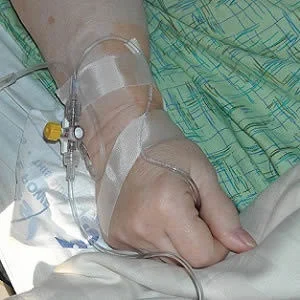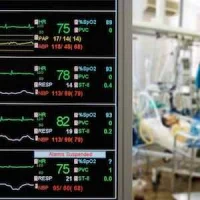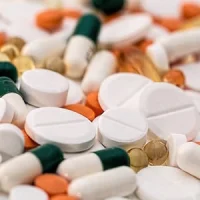A new study reported in the journal CHEST demonstrates the beneficial effects of high-dose intravenous vitamin C in reducing mortality in patients with severe sepsis. However, an Editorial published in the same issue of CHEST, calls for more studies to determine optimal dose of vitamin C in the critically ill population.
See Also: Albumin Administration in Sepsis: The Case for and Against
In the study by Marik et al., 47 subsequent patients with a primary diagnosis of severe sepsis or septic shock were compared to a control cohort in the seven months before. The study intervention included a four-day course of intravenous vitamin C (1.5 g q6h) and intravenous thiamine (200 mg q12h) as well as intravenous hydrocortisone (50 mg q6h). During the control period 60% of patients also received intravenous hydrocortisone (50 mg q6h), but no supplemental vitamin C or thiamine. The study cocktail was administered within 24 hours of ICU admission.
Results showed that hospital mortality was significantly lower in the treatment (8.5%) than in the control group (40.4%). The propensity adjusted odds ratio of mortality in the study patients was 0.13 (95% CI 0.04-0.48). The duration of vasopressor support was reduced by two thirds, the 72 hours delta SOFA score by 82% and the need of renal replacement therapy declined from 37% to 10%. None of the patients in the treatment group developed progressive organ failure.
"The pathophysiology of sepsis reminds us that high-dose intravenous vitamin C should probably be limited to the very early phase of severe sepsis or septic shock, because in the long run low levels of ROS [reactive oxygen species] are crucial for intracellular signalling. To avoid the Linus Pauling trap, pragmatic multicentre trials are needed to confirm this benefit and to exclude unforeseen harm as was seen in previous sepsis trials using promising drugs," write Heleen M. Oudemans-van Straaten, MD, PhD, Paul W.G. Elbers, MD, PhD and Angélique M.E. Spoelstra-de Man, MD, PhD, all from VU University Medical Center in Amsterdam, in the Editorial.
Hydrocortisone and vitamin C act synergistically on multiple sites in the inflammatory cascade, the VUmc doctors explain. In addition, hydrocortisone facilitates the uptake of vitamin C into the cell by restoring the cytokine induced downregulation of the vitamin C transporter, while vitamin C restores the sensitivity of the glucocorticoid receptor. Thiamine was added to reduce the risk of renal oxalate crystallisation.
During sepsis, ROS are produced in neutrophils. ROS do not only kill invading microorganisms but also cause collateral damage to host cells. The authors describe the important role vitamin C plays during lipid oxidation: "Vitamin C is the only antioxidant in plasma able to completely prevent neutrophil induced lipid oxidation. Vitamin C also prevents the depletion of other circulatory antioxidants such as lipid-soluble vitamin E and glutathione, while this is not the case vice versa. However, due to consumption plasma vitamin C becomes rapidly depleted upon neutrophil activation. Early intravenous supplementation is therefore needed to limit oxidation of lipids, proteins and DNA."
The optimal dose of vitamin C in the critically ill population is not known, and pharmacokinetic data in critically ill patients are scarce, the authors point out. In a phase I safety trial in patients with sepsis, high plasma concentrations were associated with an earlier decline in SOFA score and procalcitonin concentrations. With continuous infusion, urinary vitamin C loss and oxalate excretion seem to be lower, while a higher proportion of vitamin C remains in the body. Beneficial effects on organ dysfunction or length of ICU support were reported with intravenous doses between 1 g to up to 200 mg/kg per day. "The concomitant use of hydrocortisone was generally not mentioned. Altogether, dose finding is needed," the authors write.
More studies are needed to determine vitamin C optimal dose and treatment duration in critically ill patients, they add.
Source: CHEST
Image Credit: Pixabay
References:
Oudemans-van Straaten, Heleen M et al. (2017) How to give vitamin C a cautious but fair chance in severe sepsis. Chest; doi.org/10.1016/j.chest.2017.01.008
Latest Articles
Sepsis, septic shock, critically ill, Vitamin C
A new study reported in the journal CHEST demonstrates the beneficial effects of high-dose intravenous vitamin C in reducing mortality in patients with severe sepsis. However, an Editorial published in the same issue of CHEST, calls for more studies to de










